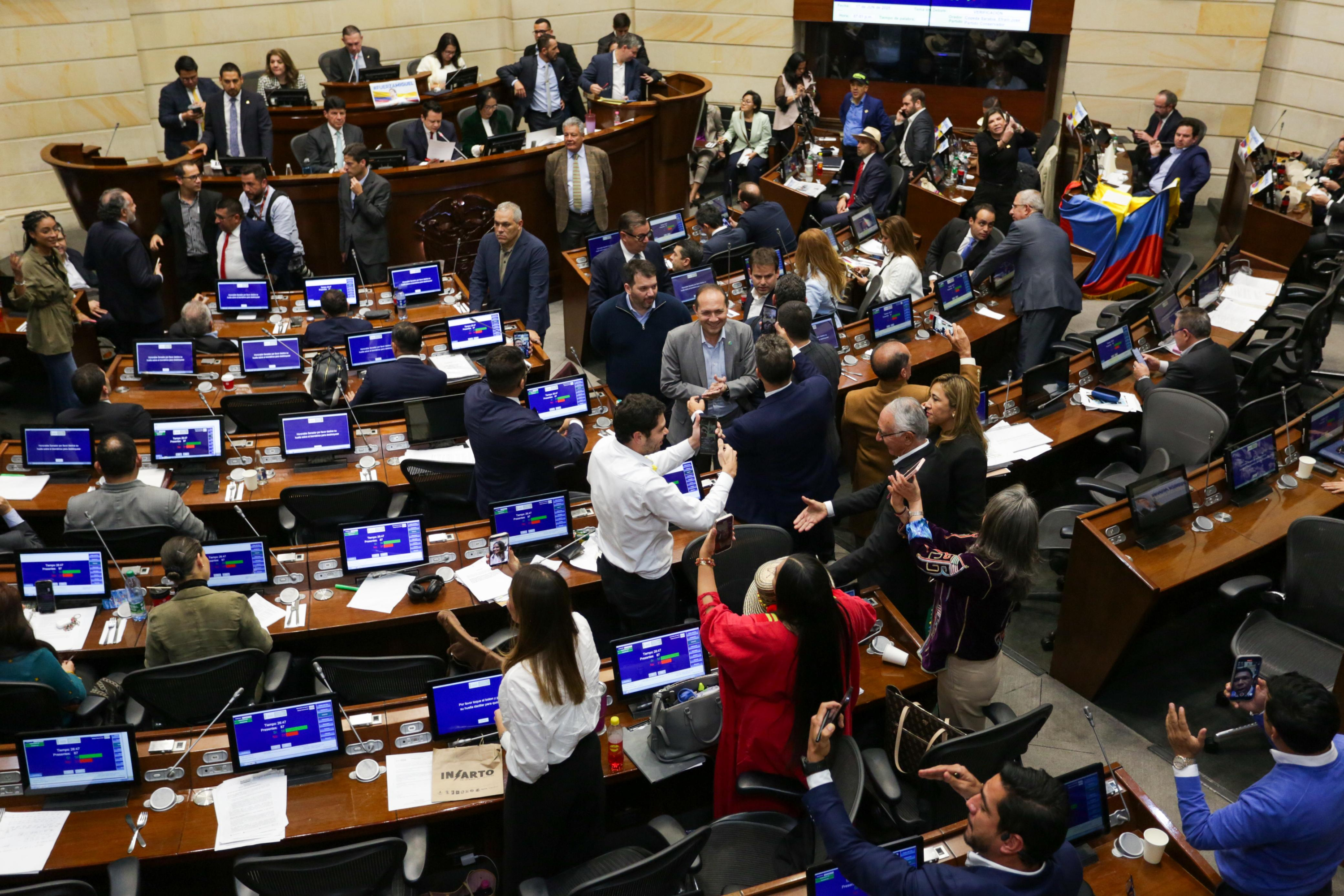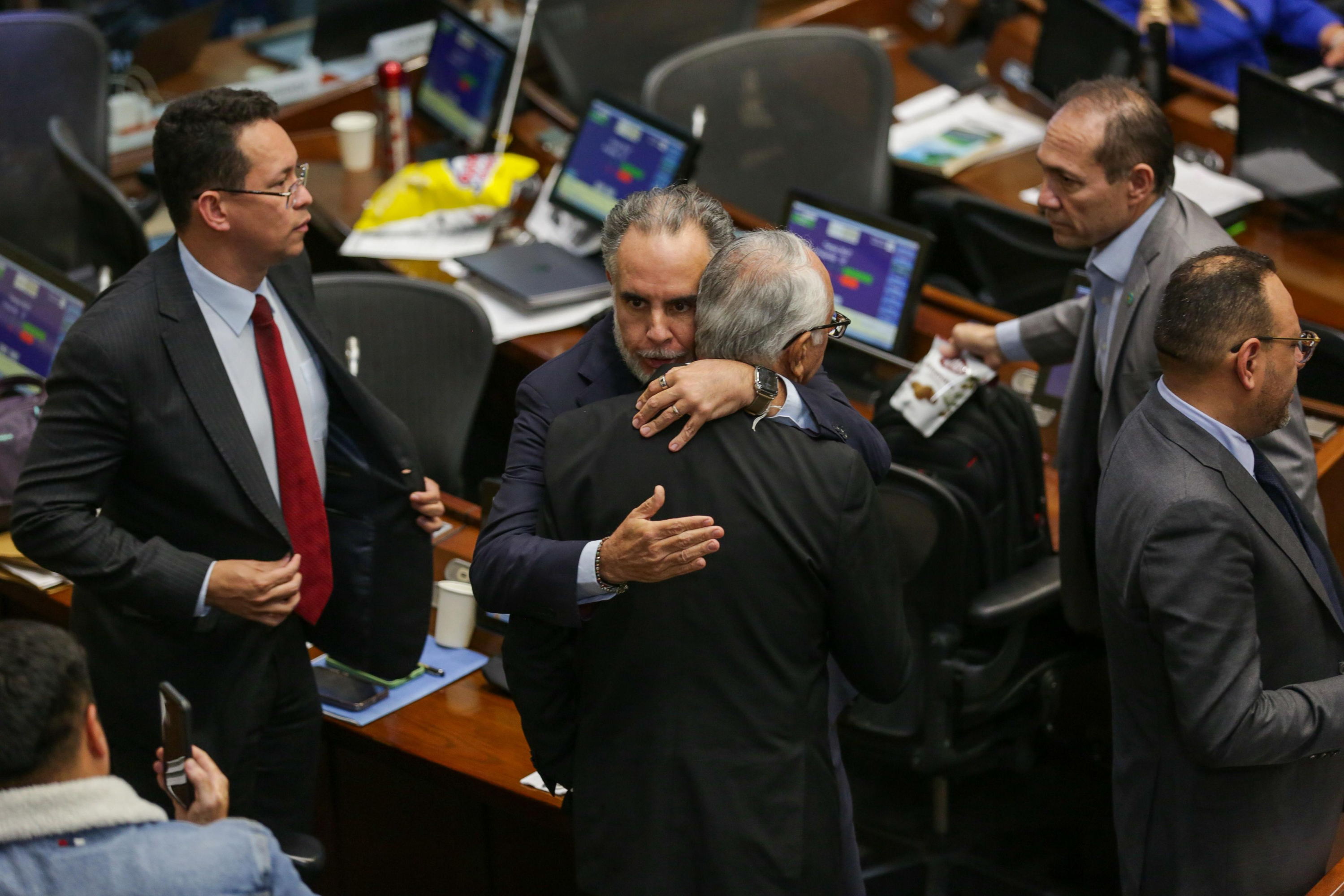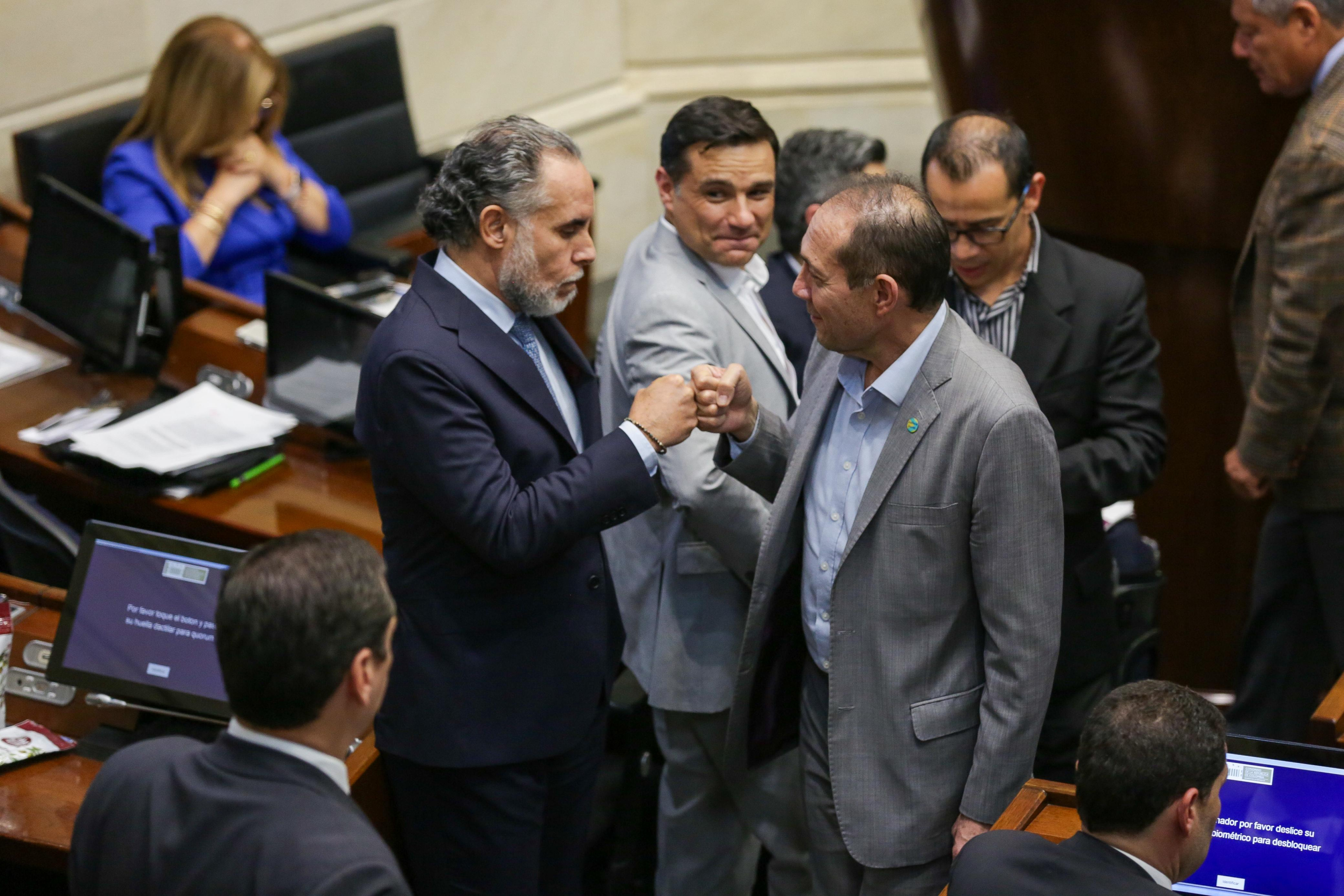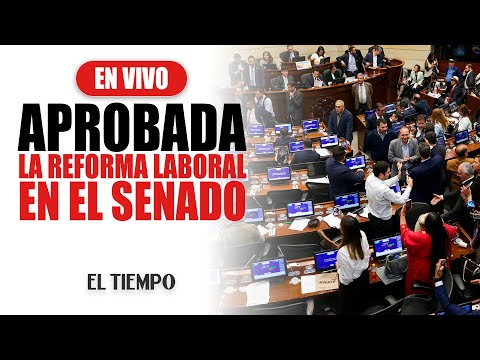These are the articles that will be most controversial in the conciliation of the labor reform

There are just over 48 hours left until the end of the legislative session, and the reconciliation of the labor reform is still pending. The proposal was very similar in the Senate and the House of Representatives, so it is expected to be a mere procedural matter. María Fernanda Carrascal (Pact Histórico) and Juan Camilo Londoño (Alianza Verde) were assigned to this task on the House side, while Juan Sammy Merheg (Conservative Party) and Carlos Abraham Jiménez (Cambio Radical) were appointed as rapporteurs in the Senate.
Although the texts are very similar, both Senate speakers oppose the bill passed this Tuesday, so there may be differences of opinion that could delay the process. It's important to remember that we're in a race against time, as the text must be reconciled and voted on in both chambers before the end of Friday, June 20, the day the third legislative term ends. Failure to do so would sink the proposal, as the two legislative terms within which it was debated are up.

The Senate plenary session approved the labor reform. Photo: César Melgarejo/El Tiempo
Gustavo Petro's government is paying close attention to this issue. It's not only the future of the second social reform approved by Congress, but it's also the point he has established as a condition for not moving forward with what has become known as the "decretazo" (the decree)—the decision to call a referendum on labor reform by decree, ignoring the Senate's negative opinion.
President Gustavo Petro reiterated at Tuesday's Cabinet meeting that he will only withdraw the controversial presidential order when the text becomes final. Yesterday, he reiterated this point after the Council of State's decision to suspend the decree: "Of course, the Senate's board of directors can use the suspension to halt the conciliation process and put an end to the recently acquired rights of millions of Colombian workers."
The points of discussion Although the Senate's proposal was very similar to the House text, especially in the key points the president made in various tweets and speeches, the Petro administration has already warned that there will be issues it will insist on during the conciliation process. "The agrarian contract is missing, and women, if they experience an abnormality during their menstrual period or severe pain, should be able to go to the doctor. Those are the two things we were missing in the Senate. Otherwise, we did quite well," Interior Minister Armando Benedetti told EL TIEMPO.

The Senate plenary session approved the labor reform. Photo: César Melgarejo/El Tiempo @cesarmelgarejoa
In the first case, the House eliminated the articles related to agricultural contracts. In contrast, the Senate processed an article that contemplated this possibility through another law. "In the first year of this law's validity, the state will formulate a public policy to support agricultural work. This policy will aim to support, accompany, and protect national productive units dedicated to agricultural activity, so that their workers can enjoy all the rights and guarantees enshrined in the Constitution and the laws, taking into account the specificities of this sector," states Article 40, which was approved by the plenary.
On the other hand, regarding what has been called menstrual leave, the Senate approved a text explicitly stating that only women and menstruating individuals may use this option "for the diagnosis and treatment of endometriosis." In contrast, the House extended it to any "working person who experiences debilitating menstrual cycles, dysmenorrhea, or abdominal tension due to menstruation."
One issue that Minister Benedetti did not mention, but which will surely have differences during the conciliation, is that of paternity leave. "Paternity leave in Colombia will progressively increase until reaching four (4) weeks in 2026, as follows: in 2025 it will rise to three (3) weeks, in 2026 it will reach four (4) weeks," states Article 49 approved in the Chamber. However, in the Senate it was left as is: 14 days. The rapporteur of the Chamber, María Fernanda Carrascal, was very critical of the non-inclusion of this point.

Labor reform approved in Senate plenary session. Photo: César Melgarejo/El Tiempo @melgarejocesarnew
Another issue promising to be debated is the compensation that SENA apprentices will receive during their school years. The House of Representatives decided to set it at 60 percent of the minimum wage, while the Senate decided to set it at 75 percent, a difference of 15 percentage points. Regarding this and other points, Minister Benedetti stated : "What was approved in the Senate is much more important and more progressive than what came from the House of Representatives."
The times of conciliation Senate President Efraín Cepeda only named the conciliators late Wednesday afternoon. This means that it's highly likely that Wednesday's session was completely lost for the standardization of the texts. This means the text must be ready before the Senate and House plenary sessions adjourn today, Thursday. This is because the conciliation vote must be announced in each legislative body, and the report to be discussed must be published in the Congressional Gazette.
Both plenary sessions are scheduled for Friday to vote on the agreed texts. If either body fails to accept the text or issue a decision by midnight, the proposal would fail. This would mean that President Gustavo Petro would once again pursue his popular referendum proposal and his threat of even calling for a constituent assembly.
YOU CAN SEE: 
The labor reform was approved in the Senate plenary session. Photo:
Juan Sebastian Lombo Delgado
eltiempo





